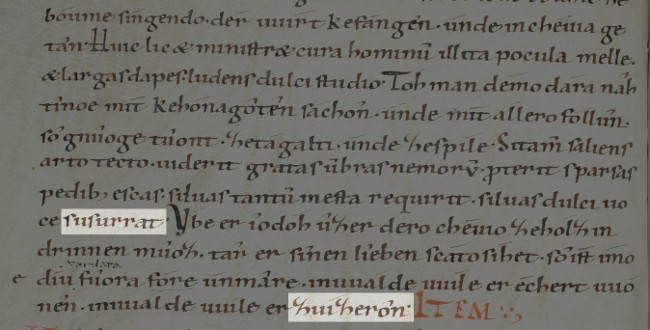More on “Twitter”
Notker Labeo (c950 - 1022) used the Old High German cognate of “twitter” for the Latin “susurrare” in exactly the same place as Chaucer in this own translation of Boethius in the early 11th century.
This is from page 118 of the manuscript. The Latin appears first followed by the translated OHG. Where Chaucer translated “susurrat” as “twitreþ”, Notker used its cognate “zwizeron”.
The original and translated sentences are then,
Boethius: “Sylvas dulci voce susurrat.”
Notker: “in uuálde uuíle er zuízerôn.”
Chaucer: “Twitriþ desiryinge þe wood wiþ her swete voys.”
“zwizeron”, pronounced “tswitseron” shares the same West Germanic antecedent as “twitter”. In fact, before the 2nd phase of the Germanic Consonant Shift (t→ts), it would have been pronounced “twiteron”. Old English did not participate in the Shift and so kept the hard “t”.
Chaucer undoubtedly did not coin the word “twitter” as it must have existed in Old English; it is pure happenstance that it was not attested in any other surviving document. The English “twitter” is in fact closer to the original West Germanic version of the word.


